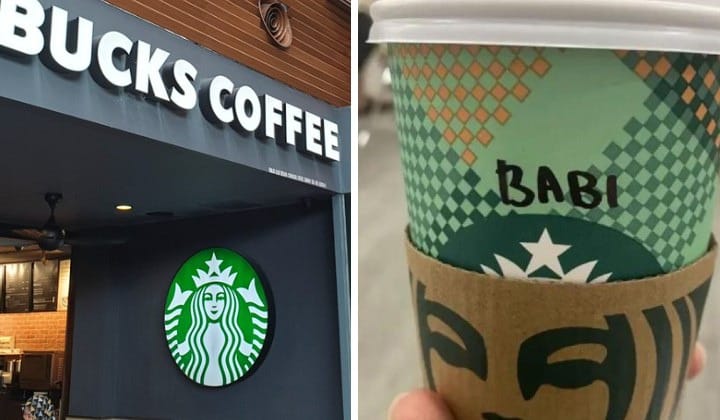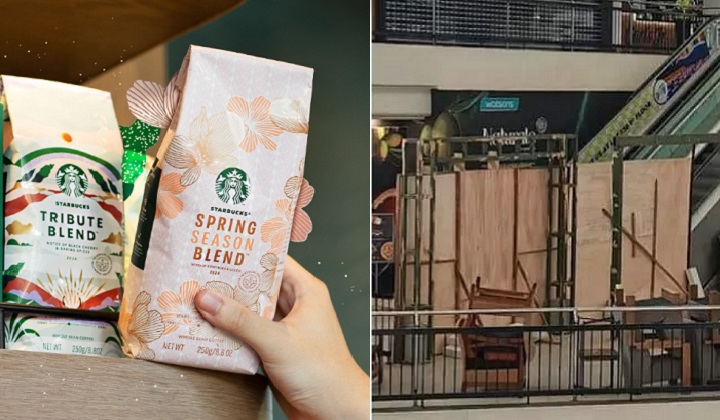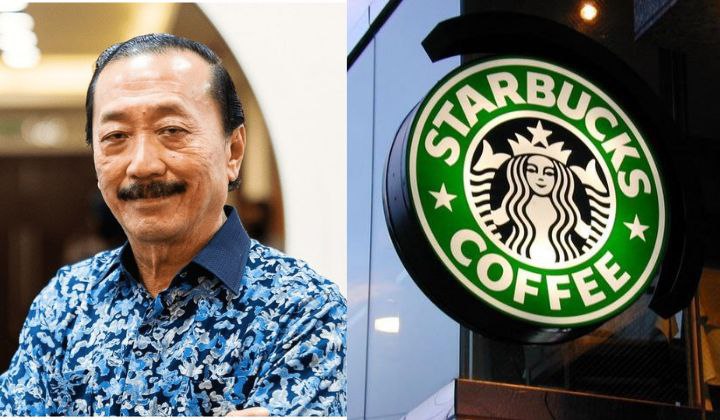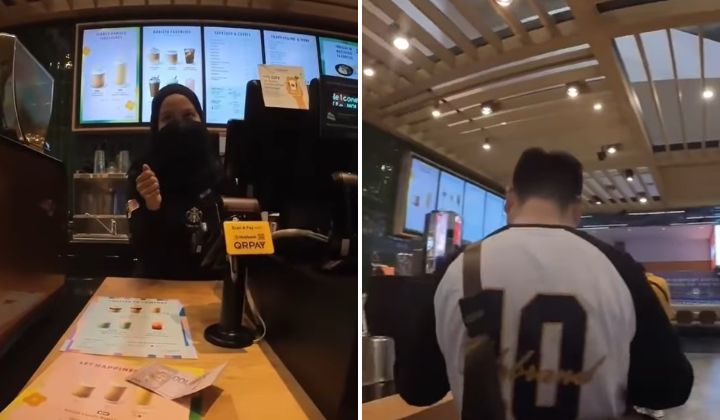Starbucks Wrong Name Issue Can Be Taken To Court But Mistakes Like These Not Uncommon, Argue Legal Expert
Kokila noted that whilst it may be uncommon, there are people named Babitha, making it arguable that the Starbucks employee may have misheard “Bavi” as “Babi” as both names have similar pronunciations.

Subscribe to our Telegram channel or follow us on the Lumi News app for the latest stories and updates.
The issue of Starbucks baristas misspeling people’s names is not a problem unique to Malaysia as YouTube and social media show us it happens everywhere.
Thus, recently when an unhappy customer brought her woes to social media about the coffee giant misspelling her name, it came as no surprise to many.
READ MORE: Starbucks Malaysia Faces Potential Legal Action Over Alleged Name Mix-Up
Speaking to The Rakyat Post, legal expert Kokila Vaani Vadiveloo said:
Given the information available and the limited facts before us, my perspective on the matter is that if someone misspells a customer’s name on a Starbucks order and the misspelling happens to be a slur word, it may constitute an act of defamation as this might harm the person’s reputation.
Legal expert Kokila Vaani Vadiveloo
Kokila, who is also a representative for the Selangor Bar, added that the victimised customer may thus bring a civil action against the employee who wrote the misspelt name under the tort of defamation.
In the context of defamation, Kokila noted that a careless misspelling can transform an innocent statement into an unintentional accusation which can in return warp the intended meaning, misrepresent the truth, and irrevocably damage a person’s reputation.
Let us not forget that the power to harm is not limited to deliberate malice; negligence and oversight can be just as destructive. Here, the impact of certain words can extend far beyond the Starbucks employee’s initial intentions.
Legal expert Kokila Vaani Vadiveloo
However, she added that in order for this type of case to hold up in the Court, defamation must be proven by virtue of the Defamation Act 1957.
Defamation is the act of making a false statement about a person that damages their reputation or causes them harm. If the misspelling of the customer’s name is considered defamatory, the customer may be able to file a lawsuit against Starbucks for damages.
Legal expert Kokila Vaani Vadiveloo
Nevertheless, she added that in order to establish a defamation claim, the following elements generally need to be proven:
1. Publication
The defamatory statement must have been communicated to a third party, either orally, in writing, or through other forms of media. In this case, if the incorrect name was written on a cup and others saw it, it could potentially be considered a publication.
2. Identification
The statement must refer to the claimant in a manner that they are identifiable, either directly or indirectly. In this case, if the incorrect name was written on the cup but was not directly linked to the customer, it might be more challenging to establish identification.
3. Defamatory content
The statement must be false and have the potential to harm the claimant’s reputation. This means that the statement made by Starbucks, in this case, would need to be considered defamatory that can typically harm a person’s reputation.
4. Damage
The customer must demonstrate that she had suffered harm or damage to their reputation as a result of the defamatory statement. This could include emotional distress or damage to her personal or professional life.
As an example, she linked the ruckus created by Malaysians back in 2018, towards British singer, ‘Dua Lipa’ when she had affectionately called her father ‘babi’ in a dedicated birthday post.
Dua Lipa later expressed her disappointment towards the hurtful jokes as the term “babi” meant father in her native language Albanian.
Furthermore, Kokila added that the affected customer must also show that the statement is not a fair comment or justifiable.
However under this particular circumstance, the Starbucks employee may rely on the defence of justification which is typically associated with defamation cases. The defence of justification essentially means that the statement made was true or substantially true, and therefore, not defamatory.
Legal expert Kokila Vaani Vadiveloo
After all, Kokila noted that whilst it may be uncommon, there are people named Babitha.
For instance, we have Babita Kumari who is a famous wrestler in India and an Indian actress named Babitha.
Hence, it is arguable that the Starbucks employee may have misheard “Bavi” as “Babi” as both names have similar pronunciations. It could have a merely forgivable blunder on the employee’s part.
Legal expert Kokila Vaani Vadiveloo
In addition, Kokila noted that our information and opinion in regards to this matter is solely based on what we observed being published on social media under the customer’s own account.
All in all, this ‘Bavi’ error serves as a tale of caution, a story that sheds light on the powerful impact of our words and the grave consequences that can arise from careless misspelt errors. While it may seem trivial to some, these seemingly innocuous mistakes can potentially unleash a chain of events that leads to a case being filed in our Honourable Courts.
Legal expert Kokila Vaani Vadiveloo
Share your thoughts with us via TRP’s Facebook, Twitter, and Instagram.








